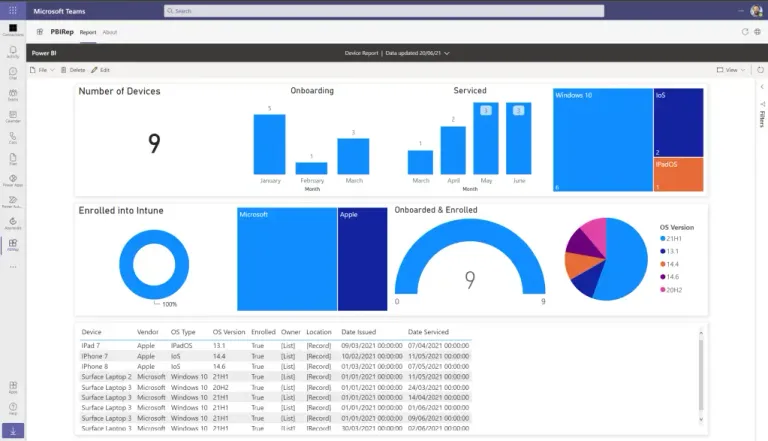Powering into Business Intelligence tools: Pros and Cons
As the article name suggests I'm diving into Power BI now, the third business analytics tool that I'm going to be learning. Power BI just like Tableau and IBM Cognos Analytics is a data visualization tool used to visualize data and statistics. Unlike the other two mentioned this one has its own pros so I'll try to list it down below from what I searched and observed while tinkering around and watching tutorials on how to use it. As a bonus, I'll also list down the pros and cons that I can find from both Tableau and IBM Cognos Analytics as well.
Power BI:
Pros:
- Integration with Microsoft ecosystem: Seamlessly integrates with other Microsoft products like Excel, Azure, and SQL Server.
- User-friendly interface: Offers a simple drag-and-drop interface, making it easy for users to create reports and dashboards.
- Strong data visualization capabilities: Provides a wide range of visualization options and allows for customization.
- Affordable pricing: Power BI offers various pricing tiers, including a free version with limited features, making it accessible to small businesses and individuals.
- Active community support: Microsoft has a large user community, which means extensive online resources and support.
Cons:
- Limited advanced analytics features: While Power BI is great for data visualization and basic analytics, it may lack some of the advanced analytics capabilities found in other tools.
- Dependency on Microsoft ecosystem: While integration with Microsoft products is a pro for some, it can be a con for organizations that primarily use non-Microsoft tools.
IBM Cognos Analytics:
Pros:
- Robust reporting capabilities: Cognos Analytics offers powerful reporting features, including ad-hoc reporting, interactive dashboards, and pixel-perfect reports.
- Scalability and enterprise readiness: IBM Cognos is designed to handle large datasets and is suitable for enterprise-level deployments.
- Strong security features: Provides comprehensive security features, including role-based access control and data encryption.
- Integration with IBM ecosystem: Works well with other IBM products like Watson Analytics and IBM Planning Analytics.
- AI-driven insights: Utilizes AI and machine learning capabilities to provide advanced analytics and insights.
Cons:
- Steeper learning curve: Cognos Analytics may have a higher learning curve compared to some other tools, particularly for non-technical users.
- Higher cost: IBM Cognos Analytics tends to be more expensive compared to some other BI tools, which may be a barrier for smaller organizations.
- Complex setup and administration: Setting up and administering Cognos Analytics can be complex, requiring dedicated IT resources.
Tableau:
Pros:
- Intuitive visual analytics: Tableau offers a highly intuitive drag-and-drop interface, allowing users to create interactive visualizations quickly.
- Wide range of data connectors: Supports a vast array of data sources, including databases, cloud services, and spreadsheets.
- Strong community and resources: Tableau has a large and active user community, providing extensive resources, training, and support.
- Scalability: Tableau can scale from individual users to enterprise-wide deployments, making it suitable for organizations of all sizes.
- Advanced analytics capabilities: Offers advanced analytics features, including predictive analytics and statistical functions.
Cons:
- Costly licensing: Tableau can be relatively expensive, especially for larger deployments or when compared to some other BI tools.
- Performance issues with large datasets: While Tableau is powerful, it may encounter performance issues when dealing with extremely large datasets.
- Steeper learning curve for advanced features: While Tableau's basic features are easy to use, mastering its more advanced capabilities may require additional training and experience.
So there you have it, the choice between Power BI, IBM Cognos Analytics, and Tableau depends on factors such as the organization's specific needs, budget, existing technology stack, and user expertise. Each tool has its strengths and weaknesses, so it's essential to evaluate them carefully to determine which one best fits your requirements.
If you ask me though, I'm leaning more on IBM Cognos Analytics because that's what I have been using so far for my collaboration with the business I'm creating a dashboard for. However, with the pros and cons laid out from observations and information found online I'm willing to try out both Tableau and Power BI to see if it will benefit me more. Speaking of its price and value, it doesn't matter as of the moment so that's out of the factor since I'll be using trial versions though.
Posted using Honouree
